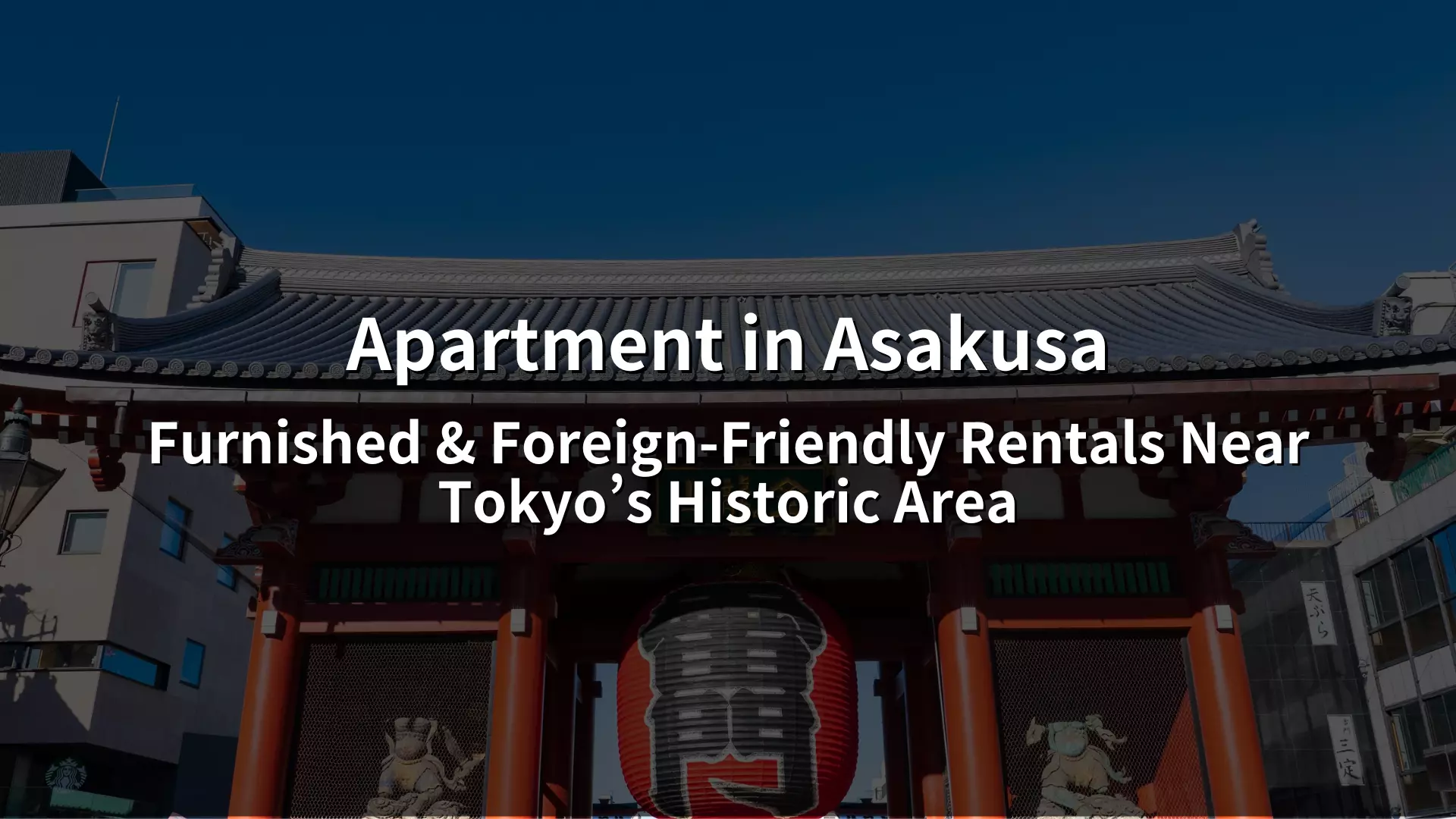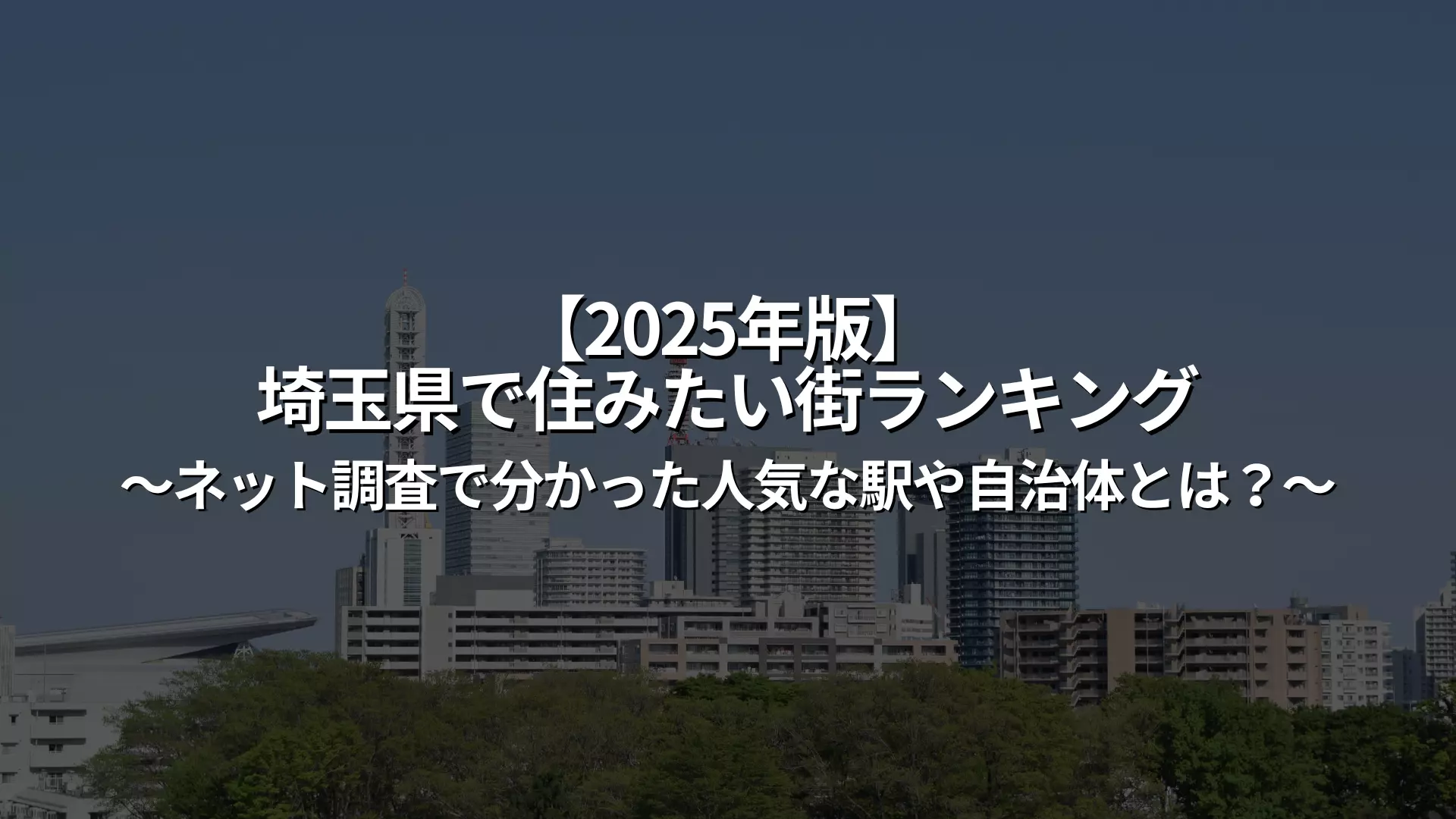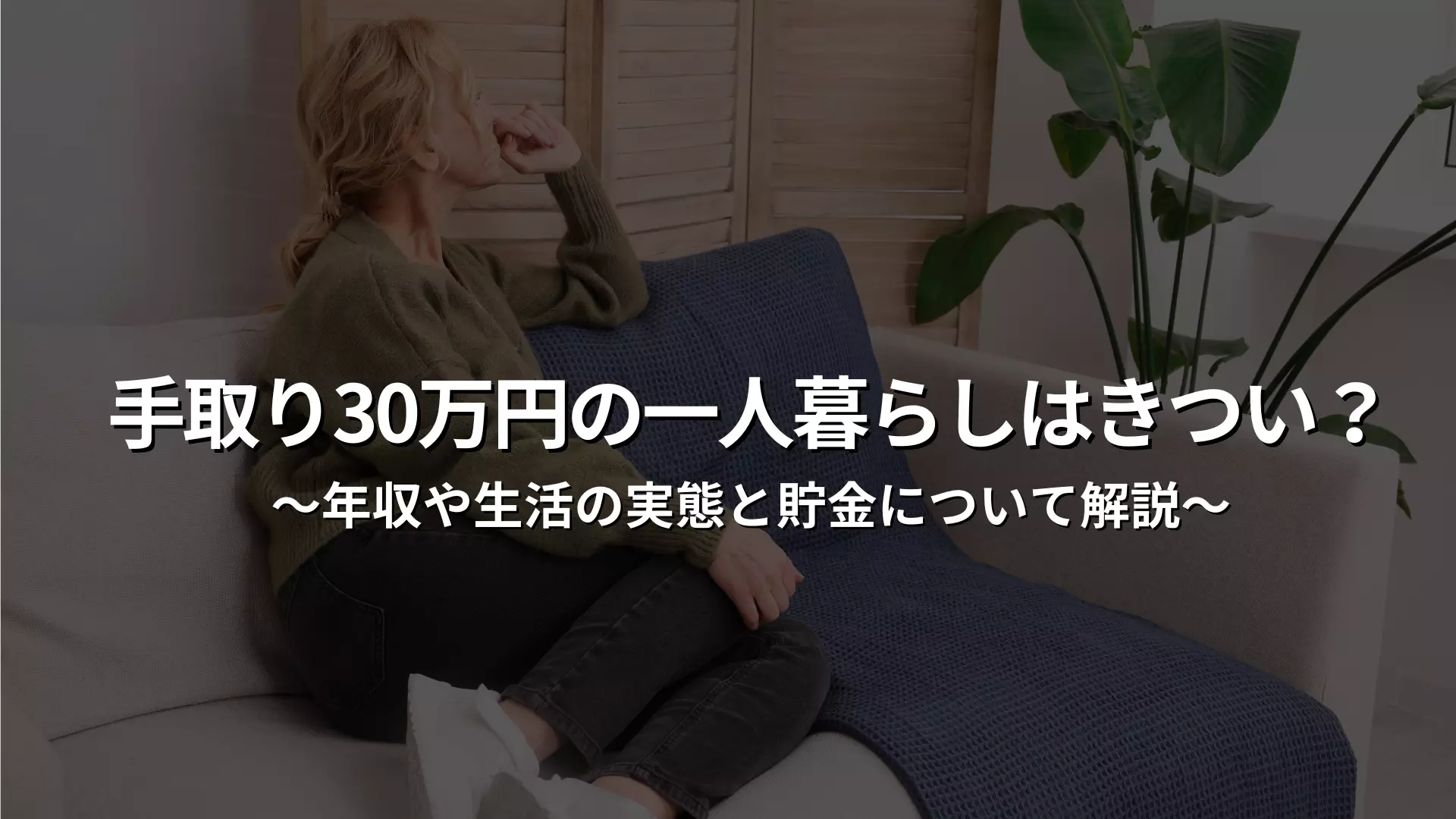What initial costs apply?
When you start living alone, the initial costs can be higher than you expect. The main costs include not only rent, but also contract-related costs such as security deposits, key money, and agent fees. In addition, if you are living alone for the first time, you will also need furniture, appliances, and moving expenses. Adding all of these together, the initial costs can often reach hundreds of thousands of yen. It is important to prepare well in advance and know your budget. In the next chapter, we will explain these costs in more detail, so please refer to it.
How much does it cost to start living alone? Check the estimated costs!
The initial costs of living alone will vary from person to person, but you should expect it to cost around 500,000 to 700,000 yen on average. The breakdown of the cost is as follows:
- Approximately 4 to 6 months' rent
- Moving expenses
- Furniture and appliance costs
Adding all these together, the initial costs can amount to a considerable sum. We will explain the specific amounts and breakdown in more detail below.
What are the initial costs when signing a rental contract? Check the costs other than rent
When renting a property, in addition to the rent, you will have to pay several initial costs separately. The main items include the deposit, key money, and brokerage fee. Let's take a closer look at each of these.
- Deposit: 0 to 2 months rent
- Key money: 0-2 months rent
- Brokerage fee: 0.5 to 1 month's rent + consumption tax
- Other expenses: Fire insurance, key replacement costs, etc.
These costs tend to be higher for properties with higher rents, so if you choose a property with higher rents, keep in mind that your initial costs will also be higher.
Moving costs and how to save money
The cost of moving when you start living alone will vary depending on the time of year. The general average is around 40,000 to 80,000 yen. However, during the busy seasons of March and April when many people move, prices go up and reservations fill up quickly, so it's important to make arrangements early. Here are some ways to keep costs down:
- Avoid weekends and hire a moving company on weekdays
- Reduce your belongings and ask the movers to take less.
By taking these steps, you can reduce your initial costs. Manage your moving expenses wisely and start living alone wisely.
The average cost of purchasing furniture and home appliances and how to get the best deal
When you start living alone, furniture and home appliances are essential items. It generally costs an average of 200,000 to 300,000 yen to get just the bare necessities. It's a good idea to buy home appliances during sales periods such as the New Life Support Fair. You can also get a discount by purchasing all the appliances you need at once by taking advantage of set sales. Buy wisely and start your new life in comfort while keeping initial costs down.
Search for a room
Only furnished properties with appliances are listed!
Initial cost of home appliances
When you start living alone, you will need to purchase home appliances. Let's take a look at what home appliances you should have at a minimum and how much the initial costs will be.
Estimated cost of home appliances needed for single living
We have created a list of home appliances necessary for living alone. The initial cost of purchasing these items will generally cost an average of 150,000 to 200,000 yen. Of course, the price will vary depending on the brand and performance of the appliance, but you should prioritize choosing items that are necessary for your daily life. The amounts are only a guideline, so please think of them as a guide. In order to reduce the cost of home appliances, we recommend considering the items sold as a set at home appliance stores, consulting with the store, and purchasing used items if you are not particular about buying new.
| item | Estimated price |
| Washing machine (5kg) | 30,000 to 40,000 yen |
| Refrigerator (for single person) | 20,000 to 30,000 yen |
| microwave oven | Approximately 10,000 yen |
| Vacuum cleaner | Approximately 10,000 yen |
| Rice cooker | Approximately 10,000 yen |
| tv set | 20,000 to 30,000 yen |
| dryer | Approximately 5,000 yen |
| Lighting (if not installed) | Approximately 5,000 yen |
| Air conditioner (if not installed) | 40,000 to 50,000 yen |
| Gas stove (if not installed) | 10,000 to 20,000 yen |
Things to consider when choosing home appliances for single-person households
Here are some points to keep in mind when choosing home appliances for living alone.
- Size of appliances: Check the size of your appliances based on the size of the room and the space available. It is especially important to check in advance whether there is enough space to install appliances such as a refrigerator or washing machine.
- Usability: Choose appliances that fit your lifestyle.
- Energy-saving performance: There has been a huge increase in energy-saving products recently, but this is also important for saving on electricity bills.
- After-sales service: Be sure to check the warranty and support system after purchasing the product. This is important in case of a breakdown.
- Brand reliability: Choosing a manufacturer with a good reputation will give you peace of mind. We recommend doing your research beforehand.
If you keep these points in mind when making your selection, you may be able to have a more satisfying shopping experience.
Initial cost of necessary furniture
When you start living alone, you need to get the bare minimum of furniture. Furniture has a big impact on the quality of your life. Here, we will introduce the bare minimum of furniture you need and its initial costs.
Estimated cost of furniture needed for single living
I have also created a list of furniture necessary for living alone, just like with home appliances. The initial cost of furniture generally costs around 50,000 to 100,000 yen on average. Of course, the amount varies depending on the type and brand of furniture, but I recommend getting the bare minimum at first.
| item | Estimated price |
| Bedding set | 10,000 to 20,000 yen |
| Bed frame | 20,000 to 50,000 yen |
| curtain | 5,000 yen to 10,000 yen |
| table | 3,000 to 5,000 yen |
| TV stand | 3,000 to 5,000 yen |
| Storage furniture | 10,000 to 30,000 yen |
Things to consider when choosing furniture for single-person living
Here are some points to keep in mind when choosing furniture for living alone.
- Efficient use of space: Since rooms for single people tend to be limited in size, compact, multifunctional furniture is recommended.
- Check the size: As with home appliances, make sure to check in advance whether it will fit in your room. If you are renting, check with the real estate agent and make sure to ask about the size of the space.
- Ease of assembly: If the assembly is simple, you can easily set it up by yourself. Try to choose something that is easy to assemble.
- Use second-hand furniture: You can also consider buying second-hand furniture to cut costs. Some items are in good condition, so it’s worth considering.
Using these points as a reference, try choosing furniture that will make your single-person living space comfortable and functional.
Search for a room
Only furnished properties with appliances are listed!
How to keep furniture and appliances cheap
Here are some recommended methods for those who want to reduce the cost of furniture and home appliances when starting to live alone. By utilizing these methods, you can save on initial costs and start your life comfortably.
Buy from the highest priority
When you move out alone for the first time, the initial costs are inevitably high. Therefore, rather than trying to buy everything you want, we recommend that you start by purchasing the items that are most important to you. If you make a list of the furniture and appliances you need for living alone, you will be able to get a more specific idea of what you need to buy.
Take advantage of sales and promotions
You can get better deals than the regular price by taking advantage of limited-time campaigns such as the "New Life Support Fair" and "Year-end Sale." Check the sales periods held at electronics retailers and furniture stores.
Utilize bundle sales
Electronics retailers and online shopping sites often sell sets of products when it's time to start a new life. If this is your first time living alone, consider buying items at a discount by taking advantage of the set sale. I think it will be more affordable than buying each item individually.
Buy second hand
For furniture and appliances that you can use without any particular requirements, you may want to consider buying second-hand items. One option is to look for products at second-hand shops or flea market apps, or to borrow them from acquaintances or friends.
Tips for reducing initial costs
When you start living alone, you need to be creative in order to keep your initial costs as low as possible. Here are some specific tips for keeping costs down. By following these tips, you can reduce your initial costs without any difficulty.
Find a property that doesn't require a deposit or key money
Recently, there has been an increase in properties with zero deposits and key money. By choosing such properties, you can significantly reduce your initial costs. Another way is to look for properties that do not require a deposit or key money, or to take advantage of campaigns. We will explain again what the deposit and key money are used for.
Deposit
- A security deposit is a security deposit that a tenant gives to the landlord.
- This deposit will be used to cover any repairs or cleaning required at the end of your lease.
- If there is no damage caused when you move out, your deposit may be refunded in part or in full.
key money
- Key money is a type of gratitude paid to the landlord when renting a property.
- Key money is generally non-refundable and is received as a token of appreciation to the landlord.
The terms and conditions of rental properties vary, so be sure to check in advance. If you can't find a property that doesn't require a deposit or key money, another way to reduce costs is to look for a property that doesn't require a key money.
Use real estate companies that charge low commission
When renting a property, you must ask a real estate agency for help. The upper limit of brokerage fees is set by law, but the lower limit varies depending on the real estate company, so if you use a real estate company with a low brokerage fee, you can reduce your initial costs as much as possible.
Get multiple quotes from moving companies
There are many options when it comes to moving companies, and the fees and services offered vary from company to company. Getting quotes from multiple companies is a very effective way to keep moving costs down. Prices tend to be higher during peak periods (March to April), so we recommend comparing multiple companies in advance to choose the best company. There are a few points to keep in mind when getting quotes from multiple companies.
- Request a quote for the same conditions
Ask multiple companies for quotes based on the same conditions (moving date, amount of luggage, etc.) and compare prices and services offered.
- Check out the "Single Living Pack" and special plans
Some moving companies offer special plans such as "single-living packs." By taking advantage of these packs, you may be able to move more affordably.
- Check the service details
Pay attention not only to the price but also to the services offered. It is important to check the method of transporting your belongings and optional services (packaging, cleaning, provision of cardboard boxes, etc.) and choose a company that offers the best overall value.
Search for a room
Only furnished properties with appliances are listed!
If you want to reduce the initial costs of living alone, consider a shared house.
We have explained in detail about the initial costs of living alone, but the initial costs are higher than you might think, and they can be a big burden. If you are considering living alone but are worried about the costs, you should also consider the option of living in a shared house.
What is a share house?
A share house is a type of housing where multiple people share a single residence. It is very popular in urban areas, and there are many in Tokyo and Osaka. Share houses have shared spaces, such as the kitchen, bathroom, toilet, and living room. The type of room also differs depending on the property, but there are two types: "private rooms" and "dormitories (shared rooms)."
The pros and cons of living in a shared house
We will tell you the advantages and disadvantages of living in a shared house.
Benefits of a share house
- Cheaper rent: The rent is cheaper than for a single-person rental.
- Furnished and equipped with appliances: Most properties come equipped with furniture and appliances, so you can move in without incurring any initial costs.
- Support system: There is a management company and a property manager on hand, so if something happens or you get into trouble, they will respond quickly.
- Community: Since multiple people live together, residents can interact with each other and form new communities.
- Convenient location: Many properties are located in the city center, making them very convenient for commuting to school or work.
Disadvantages of a share house
- Lack of privacy: Compared to a regular rental, you will be living with other people and interacting with them in shared spaces, so it is difficult to maintain complete privacy.
- Usability of shared spaces: Other residents also use them, so you may not be able to use them when you want to. Also, from a sanitary standpoint, if they are not properly cleaned, you may feel uncomfortable.
- Rules and regulations: Share houses have their own rules and regulations. Rules and regulations vary depending on the property, so be sure to check in advance.
- Noise issues: You may be bothered by the footsteps and other sounds of other residents. It's also important to get along with the people you live with.
Here are some of the pros and cons. We recommend choosing a property that suits your lifestyle.
Initial costs for living alone in a share house
The average initial cost for a share house is said to be around 80,000 to 150,000 yen. Share houses do not require a deposit or key money, and furniture and appliances are provided, so you can start a new life with less hassle and costs. The breakdown of the initial costs includes the following items.
- Rent: The rent will be calculated on a pro rata basis from the day you move in to the end of the month.
- Common area fee: Includes cleaning fee, internet fee, utility fees, etc.
- Security deposit: This covers cleaning fees and repair costs when you move out.
- Contract fee: This fee is incurred when signing a contract.
- Fire insurance premium: This covers damages in the event of a disaster.
We will tell you the average amount for the initial costs. Since it varies depending on the property, please check with the management company if you have any questions.
summary
This time, we have explained in detail about the initial costs of living alone. We have also told you about the approximate initial costs, the minimum necessary furniture and appliances, and the initial costs if you choose a shared house. Each method has its advantages and disadvantages, so it is important to make the best choice based on your lifestyle and priorities. No matter which method you choose, be sure to prepare thoroughly and start living alone comfortably. Make the best choice that suits your financial and living environment, and start your new life without any stress.























